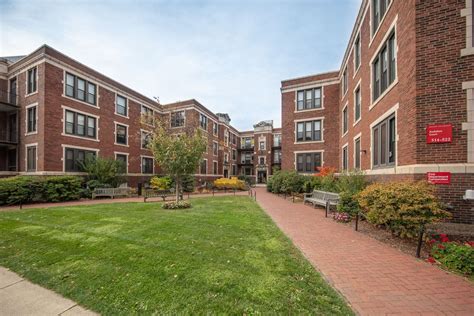Boston University (BU) is a prestigious private research university located in the heart of Boston, Massachusetts. As a popular destination for students and faculty alike, the housing market surrounding the university has seen significant activity and price fluctuations in recent years. This article delves into the complexities of BU housing prices, exploring key factors, trends, and strategies for navigating the competitive market.

Factors Influencing BU Housing Prices
Location: The proximity to BU’s main campus and the surrounding neighborhoods, such as Kenmore, Fenway, and Allston, greatly influences housing prices. Properties within walking distance of the university command a premium compared to those further away.
Property Type: The type of property, whether it’s a single-family home, condominium, or apartment, plays a significant role in determining price. Single-family homes tend to be more expensive than multi-family units.
Size and Amenities: The size and amenities offered by a property can also affect its value. Larger properties with more bedrooms and bathrooms are generally more expensive. Additionally, amenities such as parking, in-unit laundry, and outdoor space can increase the price.
Market Conditions: The overall supply and demand for housing in Boston significantly impact prices. When demand exceeds supply, prices tend to rise, and conversely, when supply exceeds demand, prices may fall.
Price Trends and Analysis
Over the past decade, BU housing prices have followed an upward trend, outpacing the overall Boston metropolitan area. According to the Federal Reserve Bank of Boston, the median sale price of a single-family home near BU increased by approximately 13% between 2010 and 2020, while the median sale price of a condominium rose by 15%. This growth is primarily attributed to the university’s strong reputation, increasing student enrollment, and the desirability of living in close proximity to campus.
Navigating the BU Housing Market
Strategies:
- Start Early: The search for housing should commence as early as possible, especially for the academic year starting in September.
- Consider Shared Housing: Renting a room or sharing an apartment with roommates can significantly reduce housing costs for students.
- Explore Different Neighborhoods: Expanding the search to neighborhoods adjacent to BU, such as Brighton or Brookline, can offer more affordable options.
- Negotiate with Landlords: Landlords may be willing to negotiate rent prices or offer incentives, especially during off-peak seasons.
Tips and Tricks
- Utilize University Resources: BU provides various housing resources, including online listings and off-campus housing fairs, to assist students in their search.
- Attend Open Houses: Regularly attend open houses to explore different properties and get a feel for the market.
- Read Leases Carefully: Ensure a thorough understanding of lease terms, including rent payments, utilities, and subletting provisions.
- Consider Transportation Costs: Factor in transportation expenses when selecting housing, as some locations may require additional costs for parking or public transit.
Pain Points and Motivations
Pain Points
- High Housing Prices: The cost of housing near BU can be overwhelming for students and faculty with limited budgets.
- Competition: The high demand for housing, especially during the academic year, often leads to intense competition among potential tenants.
- Limited Inventory: The limited supply of housing units in desirable areas near campus makes it challenging to find suitable accommodations.
Motivations
- Proximity to Campus: The convenience of living close to BU’s campus and amenities is a primary motivation for seeking housing in the area.
- Academic Environment: The university’s vibrant academic atmosphere attracts students and faculty alike, fostering a desire to reside within the community.
- Investment Potential: Some individuals may purchase properties near BU as an investment opportunity, given the university’s long-standing reputation and the steady demand for housing in the area.
Creative Approach: “Proxagemity”
To address the challenges faced by individuals seeking housing near BU, we propose a creative approach termed “proxagemity.” This concept combines proximity to the university with affordability and convenience. By exploring new development opportunities and innovative housing models, we aim to create more accessible and sustainable housing options for the BU community.
Tables
Table 1: Median Housing Prices Near BU
| Property Type | Median Sale Price (2020) |
|---|---|
| Single-Family Home | $1,050,000 |
| Condominium | $650,000 |
| Apartment (2-bedroom) | $2,500/month |
Table 2: Neighborhoods with Affordable Housing Options
| Neighborhood | Median Rent (2-bedroom apartment) |
|---|---|
| Brighton | $2,300/month |
| Brookline | $2,400/month |
| Allston | $2,200/month |
Table 3: Strategies for Negotiating Rent
| Strategy | Description |
|---|---|
| Offer a Longer Lease Term | Committing to a longer lease term may incentivize landlords to lower the rent. |
| Highlight Financial Stability | Provide documentation demonstrating financial stability, such as a credit report or pay stubs. |
| Request Rental History Verification | Offer to have a previous landlord verify rental history and payment behavior. |
| Consider Seasonal Rent Adjustments | Inquire about the possibility of negotiating lower rent during off-peak seasons. |
Table 4: Tips for Finding Off-Campus Housing
| Tip | Description |
|---|---|
| Utilize University Resources | Connect with the university’s housing office for listings and support. |
| Attend Off-Campus Housing Fairs | Participate in events organized by BU to explore housing options and meet with potential landlords. |
| Network with Students and Faculty | Engage with classmates, professors, and university staff to gather referrals and information about available housing. |
| Search Online Marketplaces | Utilize websites such as Craigslist, Zillow, and Trulia to search for rentals in desirable neighborhoods. |
相关推荐
- Colleges in Rand: A Comprehensive Guide to Higher Education in Johannesburg Table 1: Comparison of Colleges in Rand Table 2: Campus Facilities Available at Colleges in Rand Table 3: Application Process for Colleges in Rand Table 4: Career Prospects for Graduates from Colleges in Rand
- Boston University Housing Prices: An In-Depth Analysis
- Kansas City Regional Association of REALTORS®: A Vital Resource for Homebuyers, Sellers, and Agents
- Auburn Student Housing: A Comprehensive Guide
- RPI Cost of Attendance: A Comprehensive Breakdown
